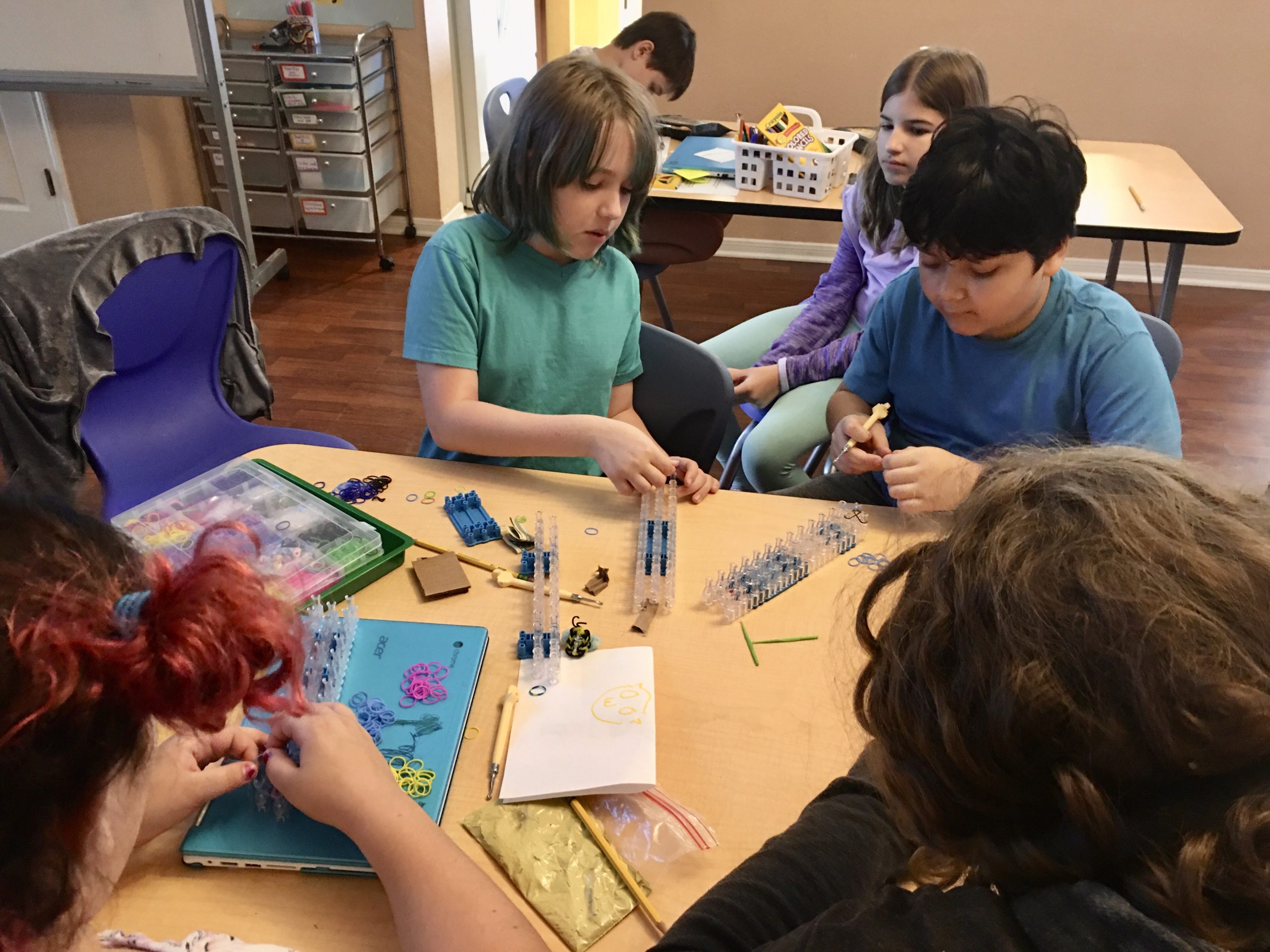What Makes Us Unique?
What Makes Us Unique?
- Teach your gifted or 2e child the way the way his unique brain naturally works, which means a differentiated, personalized learning path tailored to your child. Your child learns at his level and pace without waiting for other learners to “catch up” or without being pushed ahead when needing more time with a concept to develop mastery.
Gifted and 2e learners’ unique wiring and intellectual gifts require a different learning environment to thrive. That’s why we focus on deep dives instead of superficial learning; student-driven learning and student choice; higher-order thinking skills instead of rote memorization; hands-on learning; out-of-the-box thinking, creativity, and innovation; emphasis on quality over quantity; and project-based learning that gives students room to think holistically and think critically with theme-based topics that are multi-disciplinary.
- 7:1 student/teacher ratio. A low student/teacher ratio gives your child a sense of community with deep relationships, a focused and less chaotic classroom, and frequent teacher guidance to thrive. It allows the guides to really get to know your child, check for understanding, and provide ongoing support.
- Strengths-based approach (asset-based approach). We focus on what works and build on that. Focusing on strengths rather than deficits builds confidence and makes all the difference in how students approach themselves and their learning. We know that intelligence and skills express themselves in many ways and there is no one “right” way to build mastery.
- Project-based learning. Students work on 7-11 week-long project-based learning theme-based, deep dives that the students themselves have chosen. Hands-on learning provides real-world skills, deep mastery, and multi-subject knowledge, in addition to critical thinking development and social-emotional skills practice by working in a small-group setting. The guides help students develop the foundational skills of “learning how to learn” and provide targeted support as needed.
- Portfolio-based assessment. Grades are optional, although we highly suggest requesting a transcript for high school, which we can provide. There are no required standardized tests. Students rarely have homework other than occasional wrap up of a project item at the end of a project cycle, often in a group project. High schoolers requesting transcripts have light homework in science (we provide some class time as well), and high school level language arts students do some book reading at home according to their learning style (print, audio, Whisper synch, etc.) to prepare for college life. Students show mastery in their classes through an ongoing portfolio approach. Celebration of Learning (Student Showcase) days at the end of every project learning block (every 7-11 weeks) also provide a real-world, tangible expression of what they have learned across many subjects because they are theme-based, student-chosen deep dives. Teachers provide feedback after every learning block (7-11 weeks), and parents have access to online learning reports as well.
- Real-time, frequent communication with parents so that we can rapidly adjust to needs and nurture the parent-child-guide relationship.
What Parents Are Saying:
What Students Are Saying:
Click Below to See Our Class Schedule

